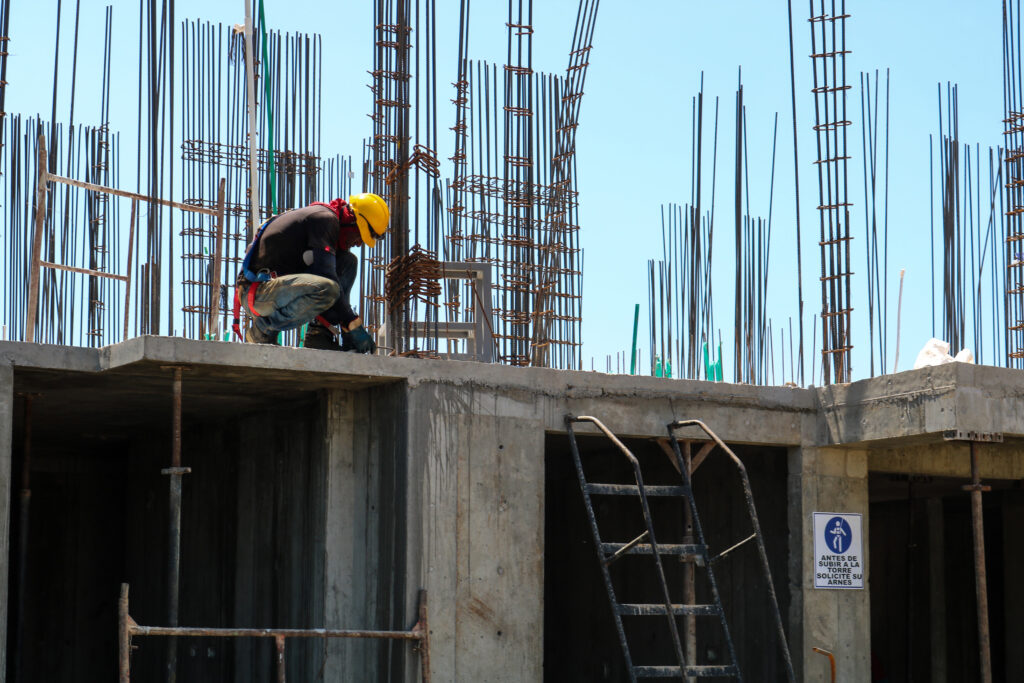Volcanoes are erupting in The Philippines, but on-fire Australia received some welcome rain. The Iran war cries have been called off and The Donald’s military powers are about to be hamstrung by the Senate. Meanwhile, his impeachment trial is starting, and we’re all on Twitter for a front-row seat.
Op-ed: We need better rules around working in extreme heat
As we move into a climate-uncertain future, we should be considering policies that specify heat-related working conditions.

The impact of climate change upon the lives of working people has become more evident this summer, when workers in the Western Hemisphere had to toil in very hot conditions. In July, a sanitation worker died on the streets in Spain, prompting a national conversation about optimal working conditions. In Italy, a 61-year-old factory worker passed out while working in high temperatures for too long. He fell, gravely injuring his head and passing away minutes after.
In the United States, UPS drivers complained because of the lack of air conditioning in their trucks, criticizing the company for spending money on installing surveillance cameras instead. In Arabian Gulf countries like the United Arab Emirates and Qatar, where extreme heat is more expected and rules prohibiting outdoor work are in place during the summer, migrant workers have been struggling and dying.
Many countries are in the midst of exploring climate change measures to cool temperatures, especially in cities, from planting trees to employing heat officers. As we move into a climate-uncertain future, we should also be considering policies that specify heat-related working conditions. In July, the European Trade Union Confederation (ETUC) and its affiliated members urged the European Commission, the executive of the European Union (EU), to pass a memorandum on maximum work temperatures.
Working in the heat is uncomfortable, of course. It also contributes to a decrease in cognitive abilities and makes work accidents 15 percent more prone to happen when temperatures go above 38C. According to Eurofound (the European Foundation for the Improvement of Living and Working Conditions), in 2021, 23 percent of European workers were exposed to high temperatures at least a quarter of the time spent at their job site. While that percentage comprises mostly industrial jobs in the construction or agriculture sectors, office workers are not exempt from high temperatures in buildings where there is no air conditioning.
Only a handful of EU countries already have rules in place around working in heat. Their stringency varies, and often leave the situation up to an employer’s interpretation. In Belgium, for instance, there are maximum temperatures depending on a job’s intensity, while in Slovenia the air temperature must not go above 28C in all work areas. In Romania, if the temperature outside goes above 37C two days in a row, then work is supposed to be stopped unless protective measures like air conditioning, enough water, and ventilation are in play.
The caveat in places like Romania, though, is that the workers themselves, unions, or the workers’ representatives (in a big company, where a union does not exist) must negotiate with the employer to halt the work, an option difficult to exercise. Often the workers do not know that regulations exist in order to protect their lives, which leaves the employers to act as they wish: continuing work despite high temperatures and pushing for more industrial production. Labor inspectors in Romania have warned employers that during heatwaves they must respect the law, otherwise they will face severe fines. But over the past decade, labor inspections have decreased by 37 percent.
Heatwaves are not new, of course, but the discussion around them “is really picking up in the political sphere,” said Claes-Mikael Stahl, Deputy General Secretary of ETUC, after a season of fires and high temperatures.
Asked about the concern over halting worksite operations due to heat leading to delays in the supply chain, Stahl responded, that while we “we must acknowledge the problem of inflation . . . profits cannot be made on the suffering of individual workers.” He continued, “If employers are concerned about inflation, they can always bike around themselves in the city, deliver food in the heat, and see how they feel about it.”
While the summer has passed and Europe is currently facing a winter energy crisis, Europe will likely have to face the same issue of heatwaves year after year, given climate trends. I recently participated in an ETUC seminar, where the business groups, unions and the European Commission agreed that cooperation is needed. As Stahl said, unions can no longer be regarded as enemies, but rather as partners to find a collective solution to the issue.
In the United States and Europe, unions are coming back hot, with American approval ratings of organized labor at decades-high levels and strikes occurring throughout the European continent. Research shows that unions provide additional security, higher wages, and prevent employers from subjecting workers to dangerous conditions.
While the conversation about maximum working temperatures continues at the European level, in Qatar, several thousand workers have died that were working on the FIFA World Cup 2022 constructions. When laborers tried to protest the poor working conditions (long hours, toiling in the heatwave), the government deported several of them. In other Gulf countries, migrant workers have to endure severe high temperatures, and often the protective measures, such as the United Arab Emirates banning working in the sun from 12-3pm in the summer, feel like a bandage on a bigger problem.
While the call for a directive on maximum temperatures represents justice for workers, given the bureaucratic apparatus of the EU, we might have to wait a bit until seeing clear results. Later, the implementation may prove difficult, because employers might just circumvent the law. In the absence of labor inspectors, little will happen to them.
But one must not stop just because there will be struggles along the way. As the world adapts to a warmed world, so too must worker protections.


